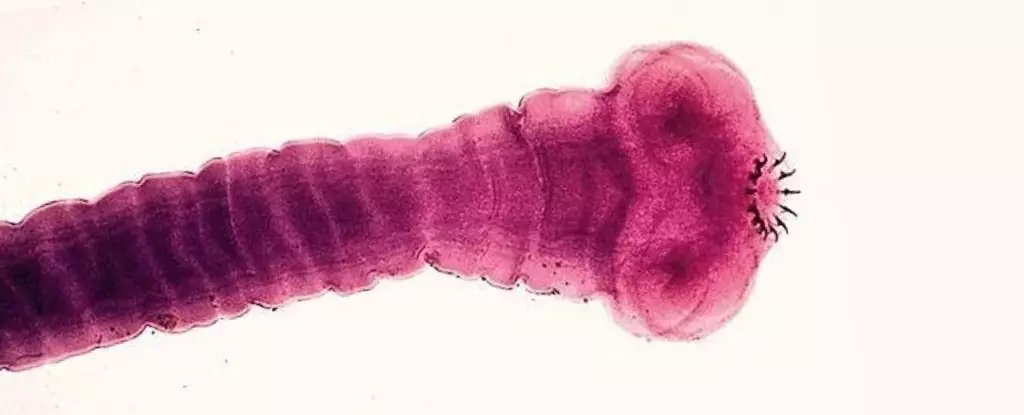A 52-year-old man from Florida visited a hospital due to worsening migraines over the past four months. Upon undergoing a CT scan, doctors discovered several cysts throughout his brain, causing the severe headaches. Further blood tests confirmed that these cysts were larval cysts of the pork tapeworm, resulting in neurocysticercosis. The case report reveals that the source of the infection puzzled the medical experts, as the man had no history of traveling to high-risk areas or consuming contaminated food.
Despite not having any traditional risk factors for neurocysticercosis, the man admitted to regularly consuming lightly-cooked, floppy bacon. This habit could have led to taeniasis, a tapeworm infection, but the mystery remained on how the cysts ended up in his brain. The authors speculate that improper handwashing after the initial tapeworm infection might have caused autoinfection, leading to the larval cysts in the brain. This unusual case underscores the importance of food safety practices and personal hygiene to prevent such infections.
Neurocysticercosis is a rare condition outside of regions with poor sanitation or limited access to healthcare. The symptoms can vary depending on the location of the cysts in the brain, ranging from mild headaches to severe neurological deficits. The case study highlights that any significant changes in migraine patterns should prompt further evaluation for underlying pathologies, as in this particular patient. Up to 80 percent of individuals with neurocysticercosis experience seizures, underscoring the potential complications of this condition.
Treatment and Recovery
The patient received a combination of anti-parasitic and anti-inflammatory medications to address the brain cysts and alleviate his headaches. Following treatment, the man showed improvement, indicating the successful clearance of the tapeworm infection. The medical team expressed concerns about the possibility of infected pork in the US, emphasizing the need for increased awareness and monitoring of food safety standards to prevent similar cases in the future.
The unusual nature of this case raises questions about the source of infection and the potential risks associated with consuming undercooked pork products. Given the historical rarity of infected pork in the US, this incident may have broader public health implications. It serves as a reminder of the importance of proper food handling and preparation practices to avoid exposure to parasitic infections. Additionally, healthcare providers should remain vigilant for atypical presentations of neurological conditions to ensure timely diagnosis and treatment.
The case of the Florida man with brain cysts linked to undercooked pork consumption sheds light on the complexities of parasitic infections and their potential impact on public health. By exploring the unique circumstances of this case, medical professionals and the general public can gain valuable insights into the transmission, diagnosis, and management of neurocysticercosis. This case underscores the importance of preventive measures and early intervention in addressing parasitic infections and their associated complications.

Leave a Reply